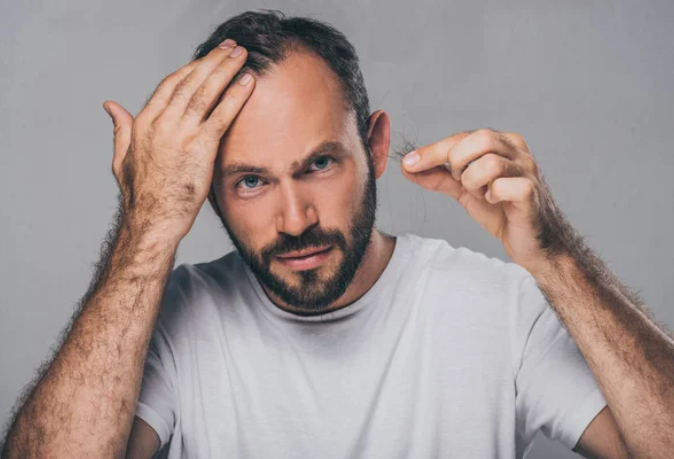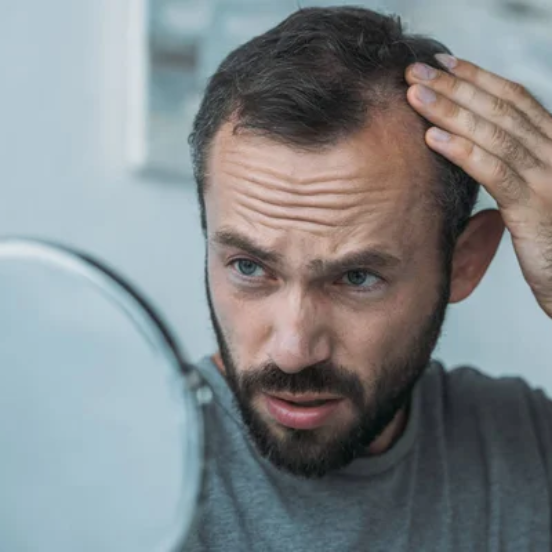Same-day online doctor visits from a phone, tablet, or computer. No need to make an appointment and wait for hours to be seen. Complete a consultation form, and a doctor will start treatment. Hair loss treatment online is issued by a board-certified licensed medical provider and sent directly to your local pharmacy. Some hair loss symptoms include thinning hair on the scalp and receding hairline. Effective medications for hair loss include Minoxidil and Finasteride.
What is hair loss?
Hair loss, also known as alopecia, is the partial or complete absence of hair from areas of the body where it normally grows, most commonly the scalp. It can occur due to various factors, including genetics, aging, hormonal changes, medical issues, medications, or lifestyle factors. Hair loss can be gradual or sudden; treatments vary depending on the cause and severity.
Causes of hair loss
Hair loss can occur for various reasons, with genetics being one of the most common causes. Conditions like male-pattern and female-pattern baldness are hereditary, triggered by genetic predisposition and hormonal fluctuations. These forms of hair loss are progressive and tend to follow predictable patterns, particularly in aging individuals. Other causes of hair loss include;
Hormonal imbalances: Life events such as pregnancy, childbirth, menopause, or thyroid disorders can disrupt the body’s natural hormone levels, leading to either temporary or permanent hair shedding. These changes can affect the hair's growth cycle, causing it to thin or fall out prematurely.
Medical conditions: For instance, autoimmune disorders like alopecia areata cause the immune system to attack hair follicles, resulting in patchy hair loss. Scalp infections, such as fungal infections like ringworm, can further damage hair follicles, leading to localized hair loss.
Medications and treatments, especially those used for cancer, heart conditions, and mental health, can have hair loss as a side effect. Chemotherapy, in particular, is well-known for causing temporary hair loss by affecting rapidly growing cells, including hair follicles.
Stress, whether physical or emotional, can cause telogen effluvium, where hair prematurely shifts from the growth phase to the shedding phase.
Nutritional deficiencies: Vitamin deficiency of iron, vitamin D, zinc, and protein can weaken hair follicles, making them more prone to breakage and shedding.
Certain hairstyles and treatments: Frequent use of tight hairstyles, heat styling tools, and chemical hair loss treatments can result in traction alopecia, where the hair is pulled or damaged over time, leading to thinning or bald patches.
Aging: Additionally, underlying health conditions such as diabetes, lupus, and polycystic ovary syndrome (PCOS) can contribute to hair thinning by disrupting normal hair growth cycles.





 19 Oct 2024
19 Oct 2024